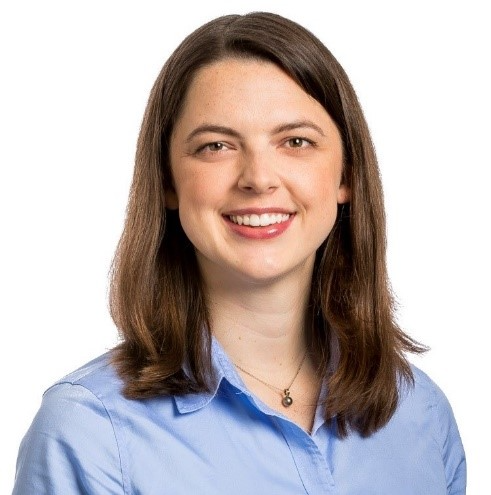
Emily Braun
Graduate Student, Affiliate
About
Emily Braun, PhD, CCC-SLP completed her doctoral work in the Center for Brain Recovery in 2023 and is now an Assistant Professor in the Department of Communication Sciences & Disorders at the University of Cincinnati.
Research Interests
Emily’s research is focused on a) behavioral and neural predictors of aphasia recovery; and b) optimization of treatment to maximize functional communication outcomes for people with aphasia.
Credentials
Certificate of Clinical Competence in Speech-Language Pathology (CCC-SLP)
Speech-Language Pathologist state licensure in Massachusetts and Illinois
Academic Profiles
Research Gate
Google Scholar
LinkedIn
ORCID
Research Directory
Peer-Reviewed Publications
Braun, E. J. & Kiran, S. (2022). Stimulus- and person-level variables influence word production and response to semantically-based anomia treatment for individuals with chronic post-stroke aphasia. Journal of Speech, Language, and Hearing Research, Epub,65, 3854-3872. DOI: 10.1044/2022_JSLHR-21-00527
Braun, E. J., Billot, A., Meier., E., Pan, Y., Parrish, T. B., Kurani, A. S., & Kiran, S. (2022). White matter microstructural integrity pre- and post-treatment in individuals with chronic post-stroke aphasia. Brain and Language, 232, 105163. DOI: 1016/j.bandl.2022.105163
Billot, A., Lai, S., Varkanitsa, M., Braun, E. J., Rapp, B. Parrish, T. B., Higgins, J., Kurani, A. S. Caplan, D., Thompson, C. K., Ishwar, P., Betke, M., & Kiran, S. (2022). Multimodal neural and behavioral data predict response to rehabilitation in chronic post-stroke aphasia. Stroke, 53, 1606-1614. DOI: 10.1161/STROKEAHA.121.036749
Dekhtyar, M., Braun, E. J., Billot, A., Foo, L., & Kiran, S. Videoconference administration of the Western Aphasia Battery – Revised: Feasibility and Validity (2020). American Journal of Speech-Language Pathology, 29, 673-687. DOI: 10.1044/2019_AJSLP-19-00023
Conlon, E. L, Braun, E. J., Babbitt, E. M., & Cherney L. R. (2020). Treatment fidelity procedures for an aphasia intervention within a randomized controlled trial: Design, Feasibility and Results. American Journal of Speech-Language Pathology, 29, 412-424. DOI: 10.1044/2019_AJSLP-CAC48-18-0227
Cherney, L. R., Braun, E. J., Lee, J. B., Kocherginsky, M., & van Vuuren, S. (2019). Optimizing recovery in aphasia: Learning following exposure to a single dose of computer-based script training. International Journal of Speech-Language Pathology, 21, 448-458. DOI: 10.1080/17549507.2019.1661518
Conference Proceedings
Lai, S., Billot, A., Varkanitsa, M., Braun, E. J., Rapp, B., Parrish T. B., Kurani, A. S., Higgins, J., Caplan, D., Thompson, C. K., Kiran, S., Betke, M., & Ishwar, P. (2021, June). An exploration of machine learning methods for predicting post-stroke aphasia recovery. Paper presented at PETRA ’21: The 13th PErvaseive Technologies Related to Assistive Environments Conference (PETRA), Corfu, Greece. DOI: 1145/3453892.3461319
Gu, Y., Bahrani, M., Billot, A., Lai, S., Braun, E. J., Varkanitsa, M., Bighetto, J., Rapp, B., Parrish, T. B., Caplan, D., Thompson, C. K., Kiran, S., & Betke, M. (2020, June). A machine learning approach for predicting post-stroke aphasia recovery: A pilot study. Paper presented at PETRA ’20: The 13th PErvaseive Technologies Related to Assistive Environments Conference (PETRA), Virtual. DOI: 10.1145/3389189.3389204
Book Chapter
Gilmore, N., Braun, E. J., & Kiran, S. (2022). Neurology, Connectivity and Aphasia. In Papathanasiou & Coppens (Eds.), Aphasia and Related Neurogenic Communication Disorders. Burlington, MA: Jones & Bartlett Learning.